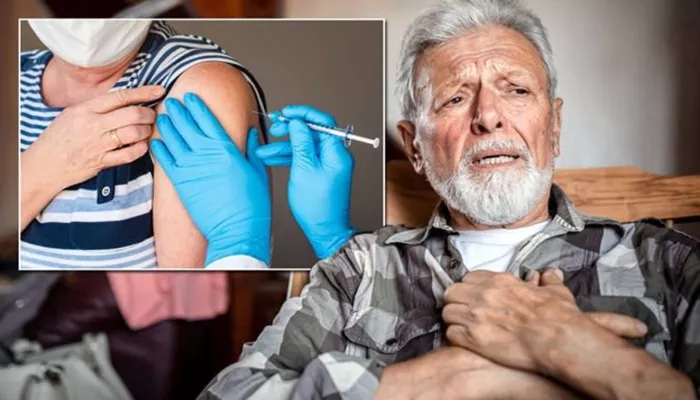Myocarditis is an inflammation of the heart muscle, known as the myocardium. This condition can affect the heart’s electrical system, reducing the heart’s ability to pump and causing rapid or abnormal heart rhythms (arrhythmias). The causes of myocarditis can vary, including infections, autoimmune diseases, and exposure to toxins. Recently, there have been concerns about myocarditis in relation to COVID-19 vaccinations, particularly in younger males. However, it is essential to note that the incidence is extremely rare, and the benefits of vaccination far outweigh the risks.
Vaccination And Myocarditis: Context and Statistics
While the link between COVID-19 vaccines, particularly mRNA vaccines, and myocarditis has been established, the occurrence is minimal. According to the Centers for Disease Control and Prevention (CDC), the cases of myocarditis following vaccination are infrequent, with most cases being mild and individuals recovering quickly with proper medical care. This context is crucial because understanding the rarity helps balance the fear with the knowledge of vaccine benefits in preventing severe COVID-19 complications.
Preventing Myocarditis After Vaccination
1. Understanding Risk Factors
To prevent myocarditis after vaccination, it’s important to understand who might be at higher risk. Young males, particularly those aged 16 to 30, appear to be more susceptible. Individuals with a history of myocarditis or pericarditis may also have a higher risk.
2. Pre-Vaccination Screening
Healthcare providers should conduct thorough screenings before administering the vaccine. This involves reviewing the individual’s medical history, including any past heart conditions or episodes of myocarditis. Those with a history of heart inflammation may need additional monitoring or consultation with a cardiologist.
SEE ALSO: How to Know If Myocarditis Is Getting Worse
3. Choosing the Right Vaccine
While the mRNA vaccines (Pfizer-BioNTech and Moderna) have been associated with rare cases of myocarditis, alternatives like the Johnson & Johnson vaccine may be considered for individuals at higher risk. Discussing vaccine options with a healthcare provider can help tailor the choice to individual health profiles.
4. Monitoring After Vaccination
Post-vaccination, it’s crucial to monitor for any symptoms of myocarditis. Individuals should be advised to seek immediate medical attention if they experience chest pain, shortness of breath, or rapid or irregular heartbeats within a week after vaccination.
5. Rest and Recovery Post-Vaccination
Encouraging adequate rest and hydration after vaccination can help the body recover. Strenuous physical activities should be avoided for a week post-vaccination to reduce the risk of heart inflammation.
6. Timely Medical Intervention
If myocarditis is suspected, early medical intervention is key.
Treatment may include medications to regulate the heartbeat, reduce inflammation, and manage symptoms. In severe cases, more intensive treatments like intravenous medications or even mechanical support may be required.
Public Health Measures And Education
Public health agencies play a vital role in preventing myocarditis after vaccination through:
Education Campaigns: Clear communication about the risks and benefits of vaccination can help individuals make informed decisions.
Highlighting the rarity of myocarditis and the effectiveness of vaccines in preventing severe COVID-19 can reduce vaccine hesitancy.
Guidance for Healthcare Providers: Providing up-to-date guidelines for healthcare providers on screening, monitoring, and managing myocarditis can improve patient outcomes.
Data Collection and Analysis: Ongoing data collection on vaccine side effects, including myocarditis, helps refine safety guidelines and recommendations.
Research And Future Directions
Continued research into the mechanisms of vaccine-related myocarditis is essential. This includes:
Identifying Genetic or Biological Markers: Understanding why certain individuals are more susceptible can lead to personalized vaccination strategies.
Vaccine Formulation Adjustments: Research into modifying vaccine components to reduce the risk of myocarditis while maintaining efficacy is ongoing.
Long-term Follow-Up Studies: Tracking individuals who develop myocarditis post-vaccination can provide insights into the condition’s long-term effects and improve treatment protocols.
Balancing Benefits And Risks
While myocarditis post-vaccination is a serious concern, it’s important to balance this with the substantial benefits of vaccination. COVID-19 vaccines have proven highly effective in reducing severe illness, hospitalization, and death due to COVID-19. The risk of myocarditis from COVID-19 infection itself is higher than the risk from vaccination, particularly in younger populations.
Conclusion
Preventing myocarditis after vaccination involves a multi-faceted approach that includes understanding risk factors, pre-vaccination screening, choosing the right vaccine, post-vaccination monitoring, and timely medical intervention. Public health measures and ongoing research are crucial in refining these strategies and ensuring the safety and effectiveness of vaccines.

